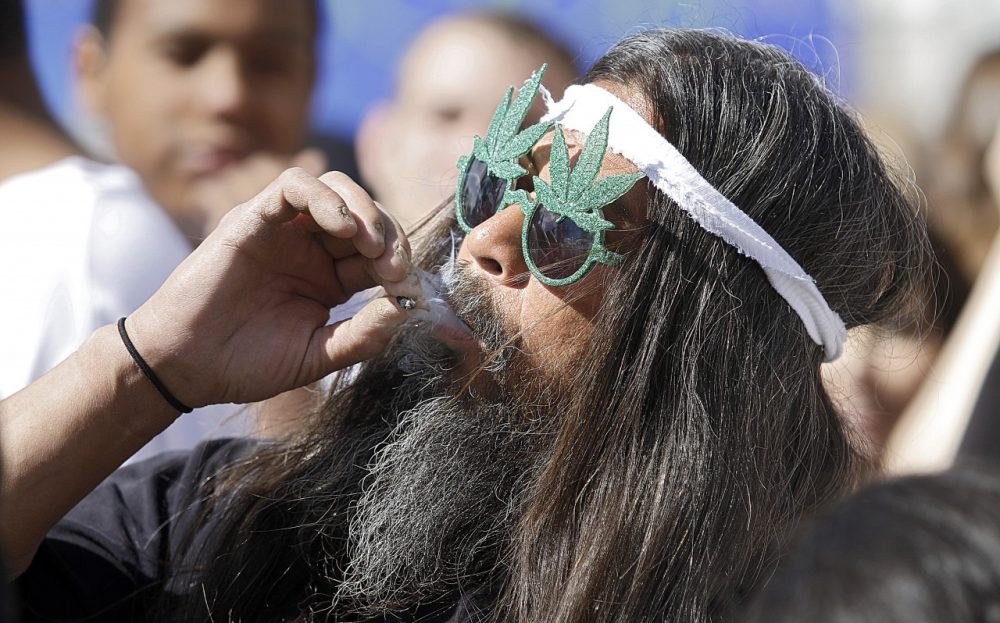Advertisement
What Legalizing Recreational Marijuana Could Mean For Minorities
Resume
Since the legalization of recreational marijuana in Colorado and Washington, well-known people have been falling over themselves to admit they once smoked.
Conservative New York Times columnist David Brooks wrote that while he and his friends enjoyed smoking marijuana when they were younger, they grew out of it and he now believes legalizing recreational marijuana is a bad idea.
"My view is that I don't get so hyped up about marijuana use, but I do think that government should lean against it," he said on NPR's All Things Considered. "It's going to lead to lower prices, it's going to eliminate the legal worries that some people have and so it will probably lead to more marijuana use."
But Slate columnist Tressie McMillan Cottom says David Brooks and others are overlooking something — how keeping marijuana illegal disproportionately puts more minorities in jail or out of a job.
Consequences For Black Men
"There's a huge amount of discrepancy between the kind of fantasy world David Brooks is painting of young white teenagers who are using marijuana recreationally, and how it becomes truly a gateway into the judicial system for African-American and Hispanic men," Cottom told Here & Now's Robin Young. "Once they are in the criminal justice system, they are more likely to be detained until their arraignment, and they are more likely to serve jail time."
A report from the ACLU shows that blacks are 3.5 times more likely to be arrested for marijuana possession, although they self-report using it about the same rate as whites self-report using marijuana.
Reduced Access To Education, Jobs
"I don't think people realize how far reaching the penalties are now for any type of criminal conviction, no matter how minor," Cottom said.
We knew that our white peers could get away with it at their parties and could smoke it while walking down a public street, and could have a totally different relationship to marijuana than an African-American could.
Tressie McMillan Cottom
Cottom says having a drug conviction dramatically reduces access to education and job opportunities. Since 1998, an applicant for federal financial aid has to disclose if he or she has any drug convictions. Similarly, many entry level jobs require the applicant to disclose any drug offenses. This often rules them out for aid or a job.
Cottom experienced this first hand when she worked at a cosmetology school and helped applicants fill out financial aid forms.
"The students would sit across from me and they would get to that box, and they would ask me, what should they say here?" Cottom said. "Well, it's a federal form. You don't lie on a federal form ... We know that after changes in 1998, that we saw a decline of students who checked the box being approved for student aid. But that doesn't even capture the students who just gave up on the process after they see that box. And that was the kind of experience I would see in my office."
A Double Standard
Cottom says she is not surprised that David Brooks' experience with recreational marijuana use — and the flippancy with which its legalization has been treated in the media — is different than the experience of the people she encountered at the cosmetology school.
"Most of those people who we see giggling about [marijuana] and bringing it to the pop culture imagination still don't look like us," Cottom said. "We knew that our white peers could get away with it at their parties and could smoke it while walking down a public street, and could have a totally different relationship to marijuana than an African-American could."
Guest
- Tressie McMillan Cottom, columnist for Slate, and doctoral candidate in sociology at Emory University. She tweets @tressiemcphd.
This segment aired on January 16, 2014.